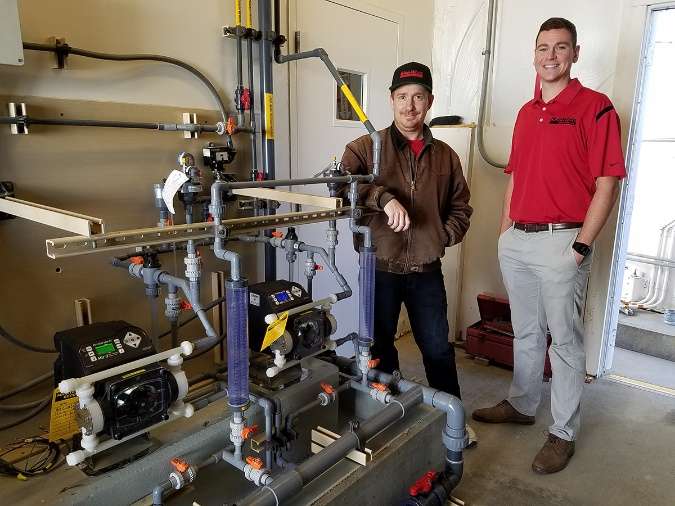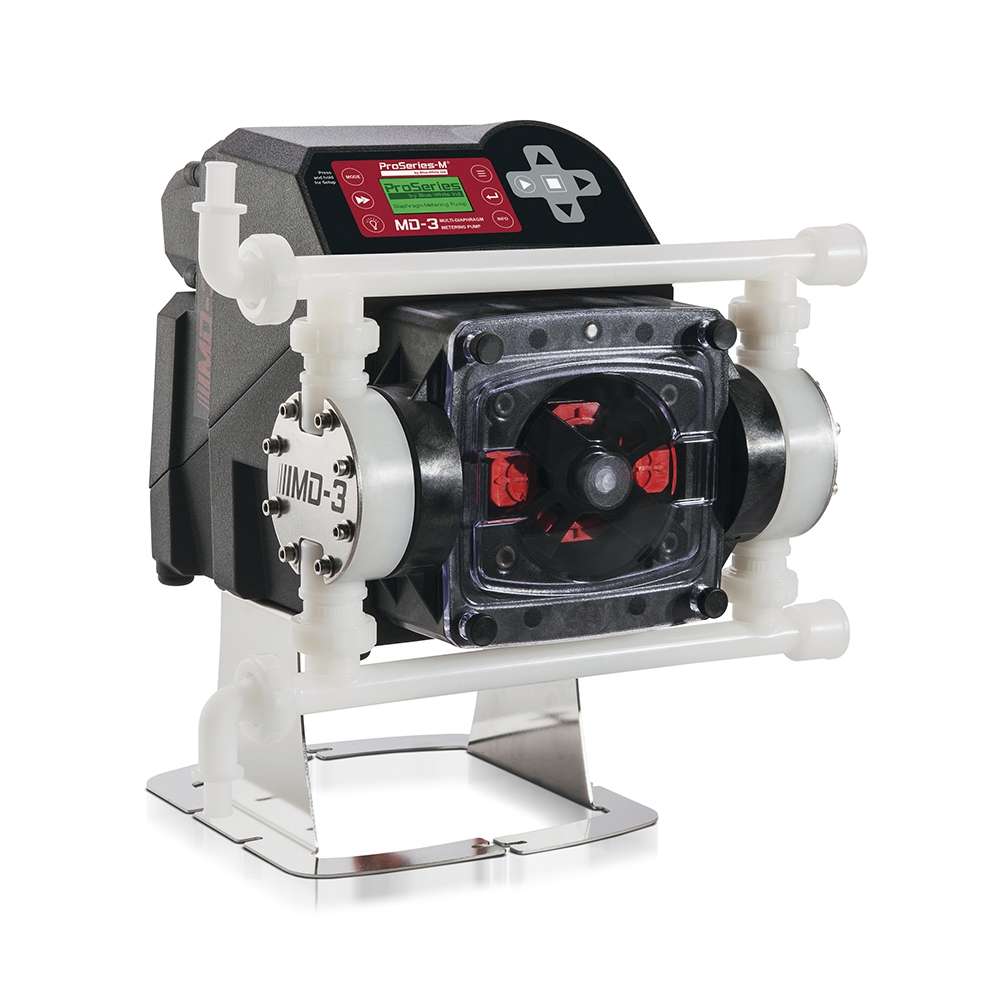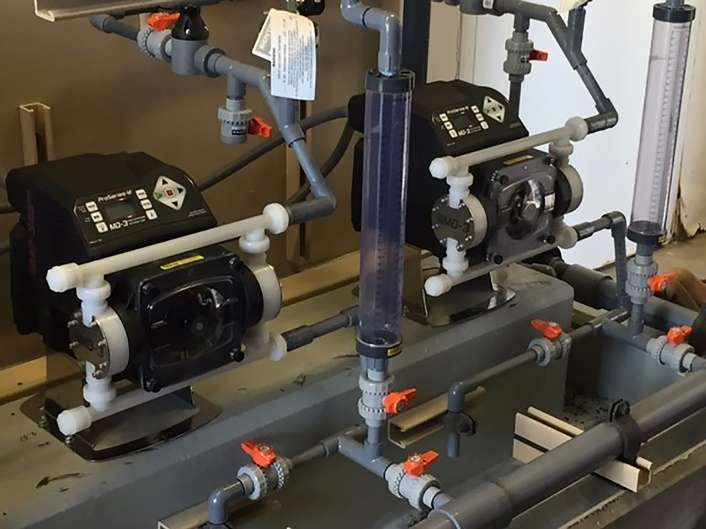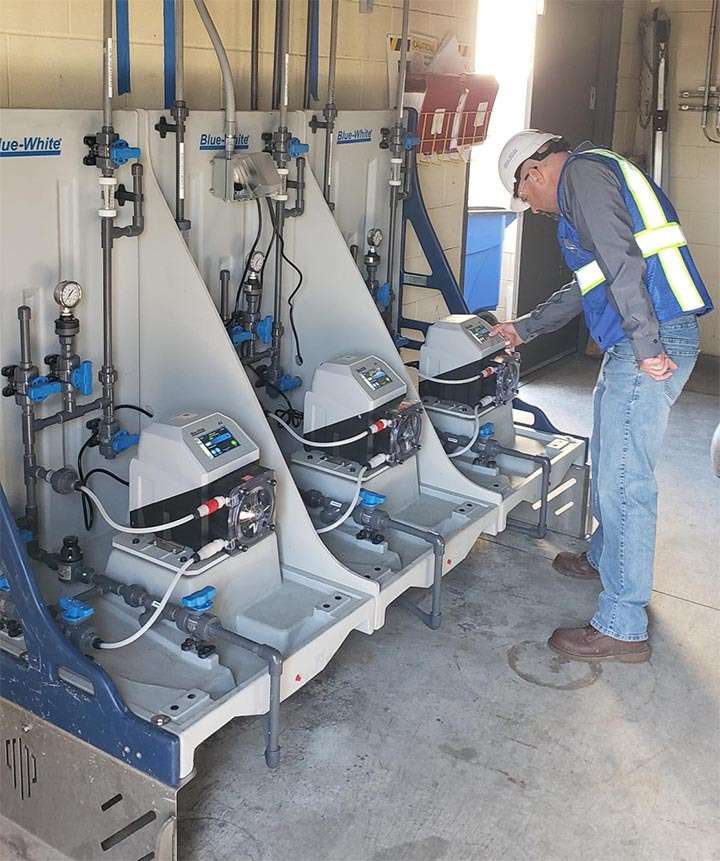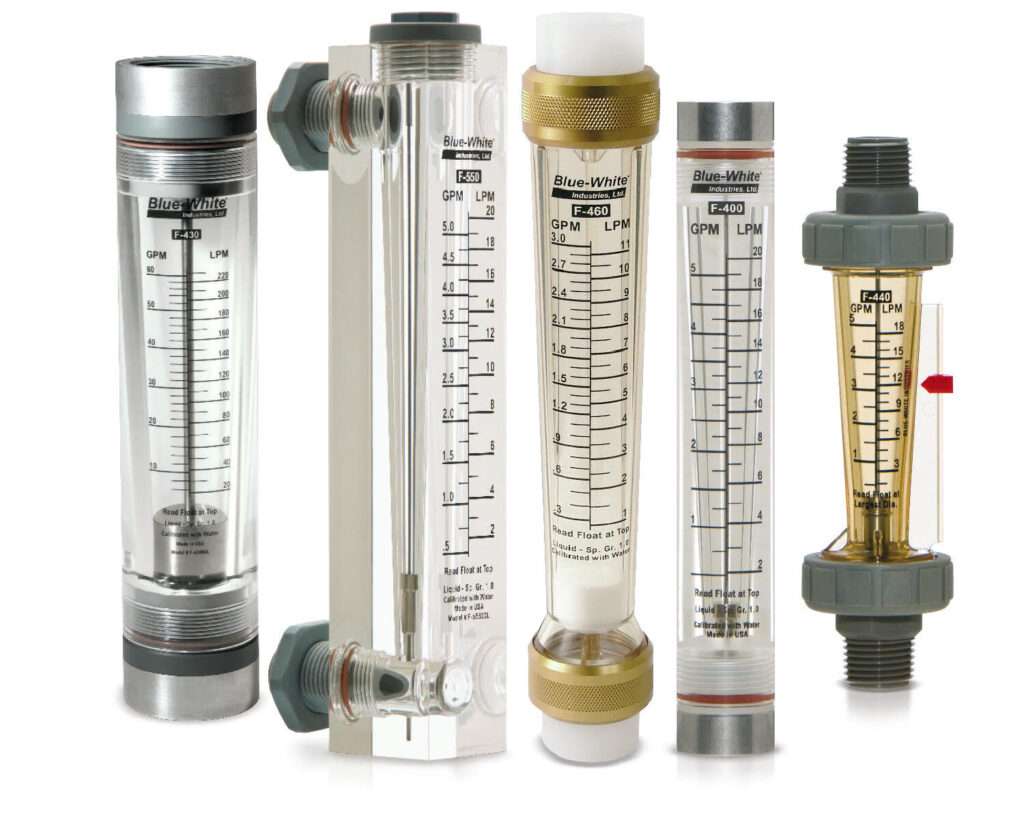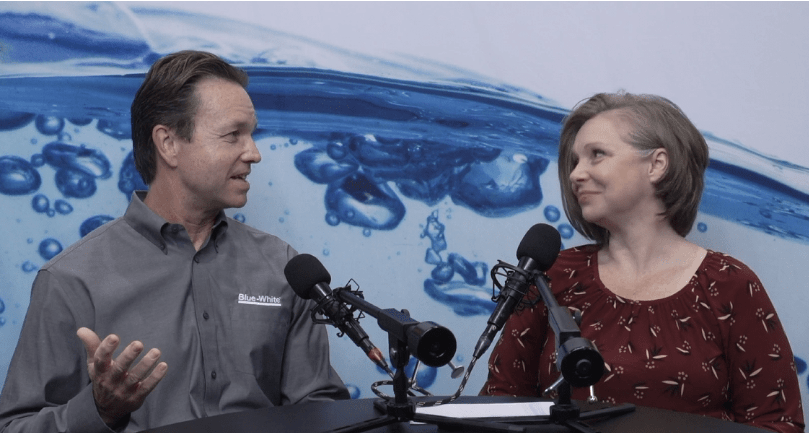Application: Marine Corps Base Camp Pendleton is the major West Coast base of the United States Marine Corps. It is located on the Southern California coast in San Diego County. The Camp maintains a self-sustaining water supply and sewage treatment plant to serve a population of 70,000.
Problem: Camp Pendleton has been using four diaphragm metering pumps to inject sodium hypochlorite into their finished potable water to pre and post-chlorinate the drinking water for the base. The diaphragm pumping cycle consists of a suction and discharge phase. During the suction phase of the cycle, gaseous chemicals like sodium hypochlorite can cause vapor lock and the pump may lose prime.
Priming was a challenge for the previous diaphragm metering pumps because this application required intermittent pumping through duty and standby metering pumps.
Another problem that presented itself with the diaphragm pumps that were in use was the expense of repairs and downtime. The repair kit was quite costly (averaging around $1200 per kit), and the pump required a full day to repair. In addition, the repair work was complicated and messy.
Solution: The diaphragm pumps in use at the facility were replaced with two of Blue-White Industries CHEM-FEED® MD3 Multi-diaphragm metering pumps for beta testing. The dual-diaphragm configuration of the MD3 provides for smooth continuous flow, mimicking the best traits of peristaltic pumps.
When the MD3’s first diaphragm is in the suction phase, the second diaphragm is in the discharge phase. This causes gaseous fluids to be pumped through the without causing vapor lock.
The hybrid MD3 diaphragm metering pump has an excellent turndown ratio of 2000:1 and provides smooth chemical dosing with no pulsation dampener required. With 380 strokes per
minute the CHEM-FEED® MD3 provides a remarkably steady flow. In addition, MD3 is fitted with Blue-White’s exclusive, patented DiaFlex® diaphragm which is designed to last the life of the pump.
Sean Donegan, Water Treatment Specialist of ACEPEX, states that “the MD3 pumps have a smooth consistent flow, like peristaltic pumps, especially at low feeds.”
Sean Donegan also states that “the MD3 pumps are less expensive than other pumps, especially when comparing spare parts cost and time to repair.” The only wearable parts on the hybrid pump are the cartridge check valves.
Result: The MD3 succeeded in pumping the gas-forming chemical in the high pressure application and eliminated vapor lock. The pumps injected 12.5 to 16% of sodium hypochlorite at the rate of 5-7GPH at 80-120 PSI. The MD3 pumps maintained an accurate and continuous flow, providing smooth chemical dosing and eliminating the need for a pulsation dampener.
Installation and setup were greatly simplified because of the pumps’ drop in place design and built-in controls. Sean believes the installation is made even easier because, “the wiring is simple with the labeled terminal blocks.”
Written by:
Amparo Burke, Advertising
Download (PDF)